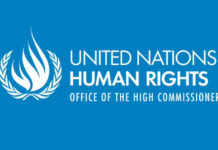United Nations Statement Criticizes Medicalization of Depression on World Health Day
"There is a need of a shift in investments in mental health, from focusing on 'chemical imbalances' to focusing on 'power imbalances' and inequalities"
Connecticut Fails to Meet Deadline on Sandy Hook Mental Health Bill
The problem with instituting sweeping, costly and invasive mental health legislation is that there always are unintended consequences. The State of Connecticut, when passing Public Act 13-3, apparently didn’t consider that there are two sides to every story. And when it comes to “mental health” there most definitely is another side beyond the mental health we-need-early-intervention-to-help-those-suffering mantra.
Challenging the Relentless Rise of Depression in Young People
In this piece, Dave Traxson discusses the social and cultural factors contributing to the rise of depression among young people in Britain, arguing that...
Antidepressant Use Climbs as Patients Find it Difficult to Discontinue
Findings point to the role of withdrawal symptoms and prescriber practices in long-term antidepressant use.
Neuroleptics and Tardive Dyskinesia in Children
There's an interesting February 11, 2014, article on Peter Breggin's website: $1.5 Million Award in Child Tardive Dyskinesia Malpractice. Apparently the individual in Dr. Breggin's paper was diagnosed with autism as a child and was prescribed SSRI's before the age of seven. The SSRI's caused some deterioration in the child's behavior and mental condition, to combat which his first psychiatrist prescribed Risperdal (risperidone). Subsequently a second psychiatrist added Zyprexa (olanzapine) to the cocktail. Both Risperdal and Zyprexa are neuroleptics (euphemistically known in psychiatric circles as antipsychotics), and are known to cause tardive dyskinesia.
My Daughter’s Story
I am now haunted by guilt that my daughter never really had a chance for anything like a normal life, because of the choices that were made for her. Choices made with the 'best' medical advice of the day, which I had never quite accepted as correct, but in the end largely complied with for lack of any clear alternative.
Nightmares in Childhood Associated With Later Psychosis
Children who reported experiencing frequent nightmares between 2.5 and 9 years of age were significantly more likely to report psychotic experiences at age 12, regardless...
Clinton Releases Mental Health Plan
Today, Hillary Clinton’s campaign released their plan for addressing mental health care in the United States. The plan calls for a full integration of...
When the Cure is the Cause
From Undark Magazine: In late 1970, a pharmacologist discovered that an antibiotic drug designed to cure a disease called SMON (subacute myelo-optic neuropathy) was actually causing...
“Being Smart About Your Child’s Brain”
In an Op-Ed in the New York Times, Frank Bruni weighs in on the “concussion crisis,” and the long-term effects that sports-related brain injuries...
Different Forms of Childhood Adversity Related to Specific Psychosis Symptoms
In this month’s issue of Psychological Medicine, researchers from King’s College London found evidence for associations between different types of childhood adversity and specific symptoms associated with psychosis. As current categorical approaches to psychosis and schizophrenia diagnoses come under increasing scrutiny, this study adds support to sociological and psychological theories and treatments.
Many States Trying to Slow Antipsychotic Prescribing to Children
Thirty-one US states have implemented some kind of "prior authorization" policies to try to rein in the unnecessary prescribing of antipsychotic medications to children.
Parent Marijuana Use Associated With Substance Use in Children
A new study examines longitudinal, intergenerational patterns associated with marijuana use.
Meditation and Exercise Reduce Depression Symptoms 40%
A combination of exercise and meditation done twice a week over two months may reduce depression symptoms by 40 percent, according to a new study published open-access this month in Translational Psychiatry. Following the eight-week intervention, the student participants that had previously been diagnosed with major depressive disorder (MDD) reported significantly less symptoms and ruminative thoughts and students without any such diagnoses also showed remarkable improvements.
As Lawyers and Bureaucrats Delay, The Body Count Rises
It took over twenty years for the state medical board to sanction a Minnesota psychiatrist who was responsible for the deaths and injuries of 46 patients. Today, in the Markingson case, it looks as if history is repeating itself. How many patients die while bureaucrats delay?
First They Ignore You: Impressions From Today’s Hearing on H.R. 3717
As I walked alone up the stairs to the Rayburn House Office Building this morning to attend the hearing of the Energy and Commerce Subcommittee on Health on H.R. 3717 - the Helping Families in Mental Health Crisis Act - I thought about how I wasn’t truly alone. In spirit with me were all the people who had experienced scary, coercive, and dehumanizing interventions in the name of help. In spirit with me was every mental health provider who went into the field hoping to really make a difference in their communities, but became cynical and discouraged in the face of so many broken systems and broken spirits.
“Doctors Say Exercise Can Relieve Depression Symptoms”
“Doctors say one of the best anti-depressants isn't even a drug, it's exercise,” CNN reports. “Experts say many cases of depression can be treated effectively with, for example, a pair of running shoes.”
Study Finds Improved Functioning for ‘Schizophrenia’ Without Antipsychotics
Long-term treatment with antipsychotic drugs is currently considered the standard treatment for patients diagnosed with ‘schizophrenia.’ A new study challenges this practice, however. The...
Researcher Critically Examines Movements for Global Mental Health
China Mills raises concerns that global mental health movements obscure social determinants of health and naturalize Western mental health concepts.
REFOCUS Psychosis Recovery Intervention Ready for Trials
A new pro-recovery manualized intervention – called the REFOCUS intervention – has been developed and will now be evaluated in a multisite randomized control trials. The strengths-based intervention, which focuses on promoting relationships, is outlined in the latest issue of the British Journal of Psychiatry.
“Here’s 1 More Map That Should Outrage Southerners”
The recently released report from Express Scripts showing a dramatic rise in the use of stimulant medications, often prescribed for ADHD, also shows that...
Major Review Finds Antidepressants Ineffective, Potentially Harmful for Children and Teens
In a large review study published this week in The Lancet, researchers assessed the effectiveness and potential harms of fourteen different antidepressants for their use in children and adolescents. The negative results, familiar to MIA readers, are now making major headlines.
“Antidepressants Linked to Tooth Implant Failure, New Study Finds”
Researchers from the State University of New York at Buffalo (UB) found that antidepressants weaken bone growth which can disrupt procedures like tooth implants....
“Does Psychotherapy Research with Trauma Survivors Underestimate the Patient-Therapist Relationship?”
Joan Cook, professor of Psychology at Yale, writes than in her work with military veterans she realized that her psychotherapy techniques mattered much less than her training had indicated. Instead, what mattered was “the bond forged over years of therapy,” known as “the therapeutic alliance.”
The Effect of Psychiatric Diagnosis on Young People’s Sense of Self and Social Identity
A new review highlights the effects that psychiatric diagnosis has on children and adolescents’ social relationships and views of self.


















